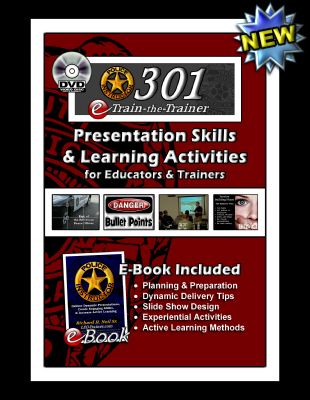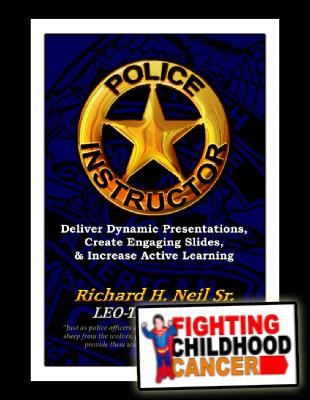In Gavin DeBecker’s best selling book “The Gift of Fear,” he teaches us how to predict violence. In each prediction of violence you must ask what  the context and ongoing developments might mean to the suspect involved, not just what they mean to you as a police officer. You must ask if the suspect will perceive violence as moving them toward some desired outcome or away from it. The conscious or unconscious decision to use violence, or to do most anything, involves many mental and emotional processes, but they usually boil down to how a person perceives four fairly simple issues: justification, alternatives, consequences, and ability. Mr. DeBecker’s office abbreviates these elements as JACA, and an evaluation of them helps to predict violence.
the context and ongoing developments might mean to the suspect involved, not just what they mean to you as a police officer. You must ask if the suspect will perceive violence as moving them toward some desired outcome or away from it. The conscious or unconscious decision to use violence, or to do most anything, involves many mental and emotional processes, but they usually boil down to how a person perceives four fairly simple issues: justification, alternatives, consequences, and ability. Mr. DeBecker’s office abbreviates these elements as JACA, and an evaluation of them helps to predict violence.
Perceived Justification – Does the person feel justified in using violence? Perceived justification can be as simple as being sufficiently provoked or as convoluted as looking for an excuse to argue, as with the spouse that starts a disagreement in order to justify an angry response. The process of developing and manufacturing justification can be observed. A person who is seeking to feel justification for some action might move from “What you’ve done angers me” to “What you’ve done is wrong.” Popular justifications include the moral high ground of righteous indignation and the more simple equation known by its biblical name: an eye for an eye.
Perceived Alternatives – Does the person perceive that he has available alternatives to violence that will move him toward the outcome he wants? Since violence, like any behavior, has a purpose, it’s valuable to know the goal of the actor. For example, if a person wants his job back, violence is not the most effective strategy, since it precludes the very outcome he seeks. Conversely, if he wants revenge, violence is a viable strategy, though usually not the only one. Alternatives to violence might be ridicule, smear campaigns, lawsuits, or inflicting some other nonphysical harm on the targeted person or organization. Knowing the desired outcome is the key. If a person’s desired outcome is to inflict physical injury, then there are few alternatives to violence. If the desired outcome is to punish someone, there might be many. It is when he perceives no alternatives that violence is most likely. A person (or animal) who feels there are no alternatives will fight even when violence isn’t justified, even when the consequences are perceived as unfavorable, and even when the ability to prevail is low.
Perceived Consequences – How does the person view the consequences associated with using violence? Before resorting to force, people weigh the likely consequences, even if unconsciously or very quickly. Consequences might be intolerable, such as for a person whose identity and self-image would be too damaged if he used violence. Context can change that, as with the person who is normally passive but becomes violent in a crowd or mob. (Violence can be made tolerable by the support or encouragement of other.) It is when consequences are perceived as favorable, such as for an assassin who wants attention and has little to lose, that violence is likely.
Perceived Ability – Does the person believe he can successfully deliver the blows or bullet or bomb? People who have successfully used violence in the past have a higher appraisal of their ability to prevail using violence again. People with weapons or other advantages perceive (often correctly) a high ability to use violence.
Now let me show you how to apply these principles with an encounter I had with a man wanted for murdering his wife and daughter. I ignored my intuition and nearly lost my life as I haphazardly rushed through a traffic stop.
Prediction in Hindsight as a Lesson Learned
One late night on patrol I stopped a car that didn’t have their lights on. This was a common activity for DUI drivers so I called for backup. When I approached the vehicle the man was well dressed and very polite, but by no means was intoxicated. I should have been relieved but something was still nagging at me as I looked around the inside of his car and talked with him. He was from Tennessee and said he became lost after he stopped to get gas, and he didn’t notice his lights off due to the heavy street lighting. I couldn’t shake the feeling but I just ignored it and went back to my patrol car to run him through the computer system. Nothing came back indicating he was wanted, and he didn’t even have any prior driving citations so I decided on a warning.
My backup, Doug, had arrived and I told him the man wasn’t a DUI and I was going to send him on his way with a warning. Doug stayed in his car engrossed in a new book as I approached the man again. I arrived at the driver’s door and I could see the man’s arm flexing, and rising up from inside his door. I found myself dropping my flashlight and grabbing his arm with both hands. I couldn’t see what was in his left hand but everything in me knew it was a gun. He reached over with his second hand and began to silently struggle with me. When I would let go with one hand in an attempt to pull my own gun, I would start to lose control and would have to grab hold of his arm again. I began to yell at him to stop resisting and within seconds I dragged him through the window of his car out into the street. The action broke his hand and wrist (go adrenaline!). I never saw the gun until it hit the street and bounced away from his broken hand. The entire ordeal only lasted a few seconds and Doug was still in his car where I told him not to worry – reading his book.
I handcuffed the man and called for assistance. Doug jumped out of his car with a look of confusion on his face. I was supposed to be giving a warning and letting the suspect go. I requested our dispatch to call Tennessee and find out what was going on with this guy who just lost all control. What were we missing?
The computer was running slow so we didn’t know he was wanted for murdering his wife and daughter just a few days earlier (good information to have if you are stopping someone). After I calmed down and thought back I felt stupid for ignoring my intuition and dismissing what was right in front of me. I remembered looking around the inside of his car and noticing he was out of gas, but he told me he just left the gas station. That is what we in law enforcement like to call a CLUE! Even though I ignored the clue my intuition picked up on it just fine and sent me that nagging feeling as it tried to protect me from myself.
It worked again when his arm was flexing and rising up from the area of his door pocket. When we grip something in our hand we can watch the muscles in our forearm and bicep move and that information is stored in our intuition, along with countless other minute facts. At the time I wasn’t even sure why I was grabbing his arm, but I had no doubt it was in my best interest to control it using whatever means possible. My intuition was done being dismissed and sent me a big danger signal on his arm movement. This time I listened and I lived. In my humble opinion, our intuition is a gift from God that we may never fully understand, but the signals it sends us, like fear, protect us from danger.
Another gift from God is the rush of power we get from adrenaline. I could probably try to pull the same guy through his car door window a hundred more times and not be able to do it. But with my adrenaline rushing, and my intuition in high gear, it happened without though and seemingly with little effort. By yelling at him I was also continuing to breathe, which kept the oxygen going to my brain and reduced the chances of freezing up. So my past training was a benefit as well.
Now looking back at the four elements of prediction you can see how they can be applied to this encounter with a murderer. His Perceived Justification in using violence was warranted in his mind because I was going to take him to jail. In his own mind, not wanting to go jail meant he had no Perceived Alternatives other than violence. His Perceived Consequences for using the violence weren’t going to get any worse than they already were, so that wasn’t going to stop him either. Finally, the Perceived Ability was definitely there with the gun ready at hand, and two murders already under his belt.
Of course I didn’t have all this information ahead of time, but many times you will. My intuition was working, although I ignored it several times, almost to my detriment. Don’t ignore yours, embrace it and act on it. It will always have your best interest at heart.
Richard Neil is the author of “Police Instructor: Deliver Dynamic Presentations, Create Engaging Slides, & Increase Active Learning.” He is a retired city cop, and instructs for several of Ohio’s criminal justice training academies. He can be contacted through his website that is dedicated to law enforcement training resources – www.LEOtrainer.com.










